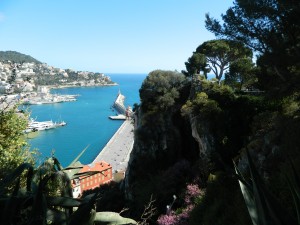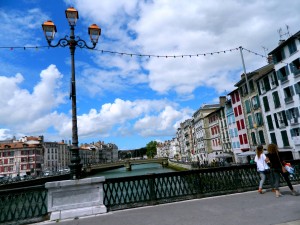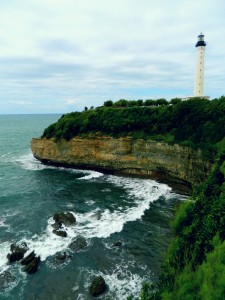Wanderlust Au Naturel
We’re all familiar with the stereotype of a young girl who goes travelling alone, oftentimes in Asia, and reports back home with Instagram photos of majestic mountaintops and awe-inspiring waterfalls. The captions include inspirational quotes and ooze strong, universal love for everything and everyone. The phenomenon of exceptional desire to explore is known by the term wanderlust, and this trend of discovering faraway lands and curious cultures has been strikingly visible in the western world for years. Sure, the urge to unearth what is new is a natural part of being human – the fact that in recent decades we have grown to know this trend of travelling is not telling us anything fresh about us people per se. We have wanted to see and conquer since ancient times, I daresay – but moving on from all the clichés, in this article, I am going to explore wanderlust itself.

The biggest and most straightforward reason as to why travelling has become more and more popular during the age of airplanes, and beyond, is simply economic growth. The development from such small salaries that they only cover every-day necessities to plumper wallets and affordable plane tickets may have had its ups and downs along the way of hundreds of years. However, spending on amusement has been self-evident for decades now, mostly in the western countries, to be exact.
Thus, we can easily argue that travelling has become mundane years ago, partly because of monetary reasons. Contrarily, backpacking in foreign forests and admiring our earth from thousands of metres above is not every-day life for each young high school graduate, who form the majority of wanderlust campaigners. Take me, for example. I grew up in a small town, or to tell the truth, some country roads’ worth outside of a very small town. My quotidian view was a tall pine forest, a couple of birds flying about the backyard, and a silent lake. It took a car ride to even step out of the land owned by my family and relatives. I lived there for some 15 years, and the same year I graduated from the local high school, I was off to southern Europe, alone. Having spent a year volunteering and travelling around France and a little bit of Italy, having met and said goodbye to people from all around the world, having sensed something very different from the pine of the past, I now claim to understand wanderlust.

Discovering doesn’t always have to be cheesy and Instagram-captioned, it can also be silent and slow. Leaving family and Finland was hardly an easy step to take for the 19-year-old small town girl that I was, and during the first six months I didn’t encounter many #nofilter worth moments. It was mostly feeling helpless, homesick, lonely and tired from the constant combat with French and the French. I had a hard time learning how to do la bise and master the lengthy politeness poetry that was needed to act natural amongst the natives. It shocked a Northern newbie how every shop closed their doors at 7 pm, well before what would still be wonted working time in Scandinavia, the empire of efficiency. I struggled with being forced to take two hours for la sieste at lunch and then working late, while my inner self of the thousand lakes was crying for a faster pace.
This is a part of exploring a new culture that doesn’t always get exactly highlighted, but it still is a crucial part of the process. It is impossible to understand a different culture without trying to get accustomed to it, making mistakes and learning from them, and eventually, reaching that point where you feel comfortable within your brand-new home. For me, the process of fitting in peaked at around 7 months of living on French soil, and when it was the time to leave again, I had become so much of a stranger to my Nordic roots that I had to adjust again. When I, the grand, grown globetrotter, dragged my overweight valise again across the humble Helsinki-Vantaa airport, my family made sure to comment on my eccentric intonation and use of unnatural idioms in Finnish. Meanwhile, I had to gather all my strength to remember how Finns greet each other and, on my way back to life pre-wanders, to bury the idea of dropping by a boulangerie to purchase some Sunday croissants. Only after having been back in Finland for some three months, I felt at home again.
My French discoveries may not have always been Instagram worthy, but the sense of wanderlust I had been secretly growing inside of me for all my teenage years finally got satisfied. I have come to learn to adjust; I have seen whole new types of trees, houses, manners, work ethics, coffee makers and dinner times; I have conquered a curious culture by adapting to it and learning from it – just for me. I travelled alone, and even though I made unforgettable friends along the way, it was still I who took the steps forward, who waited for the bus that was four hours late to go on a holiday on the coast by myself, who learnt which wine to order with a goat cheese salad in a Bordeaux restaurant, who found a way to an unseen place, who looked at it, and who remembered how to get back.

Above all: the grass still smelled the same, the sky still looked the familiar shade of blue, the every-day life still felt as ordinary as ever. Only the details were switched around just a little, so that I had to either adjust them or myself. I commenced what became the most difficult journey that I have ever taken, but it also taught me the most about life that I could have ever learnt in one year. And now, I’m happy at home, though as a little changed version of myself.
So, as certainly as is wanderlust a fundamental part of human nature, it doesn’t always equal what you see nowadays on glorious photos in social media. It takes a lot of effort to really explore, and most often than not, you will actually end up exploring yourself instead of a park, a city, or a mountain. One thing’s for sure: if you ever meet this magical motivation to go and see, the one that is known as wanderlust, you should listen to it. Instead of a foreign land, you might learn to conquer yourself. Now, if that is not a healthy hunger – wanting to grow as a person through learning to understand what is different – then what is?